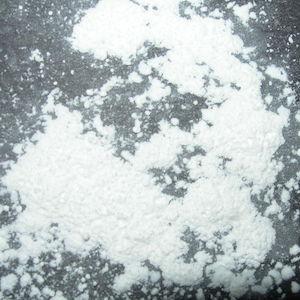When you cross the state line into California, your risk of cancer immediately quadruples. We know this because of all the warning signs. From coffee shops and airports to Disneyland and even oncology wards, the entire State of California is carcinogenic. It needs an aura cleansing.
To understand anything that happens in the Golden State, you first must accept the sort of logic that only applies in Bizarro World. For example, coffee causes cancer in California, even though scientists say it protects against cancer. California is where people sue Monsanto for causing cancer, even though the FDA, EPA, WHO, and EFSA disagree. And California is where "wi-fi truther" Joel Moskowitz, who claims that wi-fi and cell phones are killing all of us, gets to collect taxpayer money.
Essentially, California is one of the few places on Earth where up is down, black is white, and if a scientist says, "Do this," California does the opposite. Therefore, it's not a coincidence that nearly every major anti-scientific movement -- such as opposition to vaccines, GMOs, and nuclear power -- initially gains steam in California. An extensive infrastructure of ignorance and charlatanism, thanks largely to Proposition 65, allows activists and lawyers to profit by pushing pseudoscientific nonsense into the mainstream culture.
Baby Powder Causes Cancer in California, But Not in South Carolina
Johnson & Johnson is now the latest victim of California logic. The company, which produces baby (talcum) powder, has been hit with a series of multimillion-dollar jackpot verdicts based on the ridiculous notion that the powder causes cancer. The lawyer who won the California case on behalf of a 66-year-old woman with mesothelioma said that J&J's baby powder "has contained asbestos for decades."
That's such a misrepresentation of reality, that it's basically a lie. This is what the American Cancer Society says about talcum powder:
In its natural form, some talc contains asbestos, a substance known to cause cancers in and around the lungs when inhaled. All talcum products used in homes in the United States have been asbestos-free since the 1970s. [Emphasis added.]
So, was this woman's mesothelioma caused by baby powder? Almost certainly not, but a dishonest trial lawyer got a jury to fall for it. The jury concluded that J&J was "negligent" and a "substantial factor" in causing the woman's mesothelioma.
Particularly idiotic* is the jury's finding that J&J's baby powder posed risks that were "known or knowable in light of the scientific and medical knowledge" at the time. The last time products like baby powder contained asbestos was the 1970s, and the scientific community concluded in the mid-to-late 1960s that asbestos caused mesothelioma. In other words, talcum powder manufacturers removed asbestos from their products soon after the scientific community reached a consensus.
Compare what happened in California to what happened in South Carolina. In the Palmetto State, a jury could not come to a unanimous decision that baby powder caused cancer, so the judge declared a mistrial. That's not a resounding victory for science, but at least some South Carolinians are skeptical enough of money-grubbing activist lawyers.
For the Baby Powder IQ test, California flunks, while South Carolina passes. Just barely.
Note: Yet more idiotic is the fact that, last year, a Los Angeles Superior Court judge overturned a $417-million verdict against J&J's baby powder. Neither scientific evidence nor legal precedent mattered to this jury.




